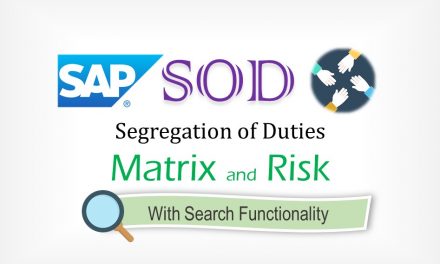
Here, we’re going to cover everything you need to know about franchise accounting, including how to do it yourself and how to know if you is the bond market still a good investment in 2019 what to know and what to do about it need to hire a professional. While there are many factors involved, the accounting process is foundational. Put simply, accounting is “the process of recording financial transactions pertaining to a business” (Investopedia). Common KPIs include gross profit margin, net profit margin, and return on investment (ROI). By keeping an eye on these indicators, we can ensure our franchise is on the right track.

These metrics often align with the franchise’s business model, which could be low-margin and high-volume, demanding rigorous sales targets. In addition to usual operating expenses, franchisees have to account for recurring fees like royalties and advertising funds, contributing to more complex cash flow management. In summary, a franchisor is the entity that owns the rights and licenses to a brand or business, granting franchise licenses to third parties, known as franchisees.
The Basics of Franchise Accounting
As a franchise owner, you can run your own business without the risk of starting a brand new company. Like any business, you take on the many responsibilities of day-to-day operations, including some basic accounting tasks. Though franchise accounting is similar to accounting for other types of businesses, it includes a few extra steps. In the rare event of errors or discrepancies, we will states with the lowest taxes and the highest taxes promptly identify and rectify them, working diligently to maintain accurate financial records for your franchise. Guardian CPA Group specializes in franchise accounting, offering you customized advice, strategies, and solutions tailored to meet the intricate financial demands of franchise businesses.
When it comes to accounting methods, franchises often use a mix of cash and accrual accounting. In accrual accounting, you record income and expenses when they are earned or incurred, regardless of when the money is actually received or paid. Each method has its pros and cons, and the right choice depends on your specific business needs. We provide valuable financial analysis and insights to help you make informed decisions, optimize operations, and improve profitability.
#4 – Tracking Inventory & Supplies
When you choose to work with Guardian CPA Group, you’re not just hiring an accounting firm; you’re partnering with a member-based organization invested in your success. With a unique blend of AI technology and a seasoned staff, we give you the tools and expertise you need to focus on what matters most—your business. All businesses have certain things in common, like overhead costs, revenue, and profits.
Look for software that offers features tailored to franchise businesses, such as modified accrual governmental reporting overview multi-location support and detailed financial reporting. Franchise accounting can be defined as the process of managing financial transactions and records of a franchise business. It’s a crucial aspect of running a franchise, which helps to monitor revenue, expenses, and cash flow.
Keep Track of Expenses and Revenue
- Before paying the fee, the franchisee needs to project how much business capital they will need.
- It helps franchise owners stay on top of their financial position and take timely actions to ensure good cash flow.
- In this model, the master franchisee serves as the franchisor for all franchisees in the area, providing support and assistance in accounting procedures.
- If you already use a CPA or tax preparer, we’ll work directly with them to ensure they have everything they need to file your franchise taxes each year.
- For each location, the franchisor sells the rights to the franchise to individuals.
By regularly comparing our bank statements with our internal records, we can catch any discrepancies early and ensure everything matches up. This step is key to maintaining financial oversight and avoiding any nasty surprises. A master franchisee is granted the right to operate the franchisor’s business model in a particular region or country. In this model, the master franchisee serves as the franchisor for all franchisees in the area, providing support and assistance in accounting procedures. The franchisor provides guidelines and standards, but the master franchisee has more responsibility for accounting.
Tax Considerations for Franchise Owners
Managing the finances of an area development franchise can be challenging, as the franchisee has to coordinate the accounting process across multiple locations. However, this model provides a significant opportunity for growth, as the franchisee can expand their business operations within a specific territory. The franchisor can also provide support and guidance in managing the finances of multiple locations, ensuring consistency and accuracy in financial reporting. A single-unit franchise is a stand-alone business that operates independently under the franchisor’s brand name and business model. In this model, the franchisee is responsible for all financial transactions, including bookkeeping, payroll, and taxes. The franchisor provides training and support, but the accounting process is entirely managed by the franchisee.